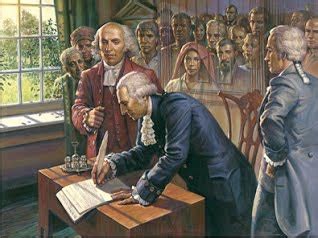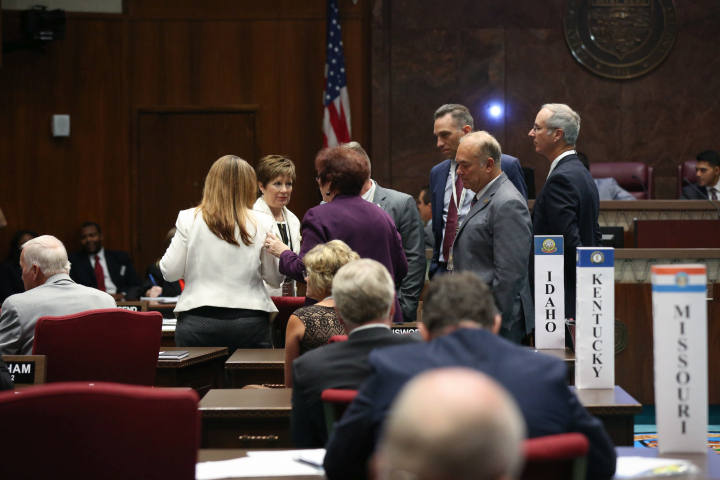
Ancestor Worship Will Not Solve Our Problems
by Vickie Deppie – February 2024
During a recent hearing for an Article V measure under consideration by the New Hampshire House, an opponent testified, “Are we of the same character as the people in the late 1700s who fought a revolution against the British? I don’t think we are…We should be thanking our lucky stars that we have [a Constitution] that’s as good as it is, and we should not try to change it at all.”
Are we really so morally inferior to our forebears that we can’t be trusted to amend our Constitution? This position has, as its cornerstone, the assertion that the delegates to the Constitutional Convention disobeyed their instructions to simply amend the Articles of Confederation and instead wrote an entirely new Constitution; and since that’s what they did (supposedly), we should expect delegates to a convention for proposing amendments to run amok, too. This is demonstrably false, but let’s imagine for a moment that these naysayers are correct…that the Constitutional Convention of 1787 really did “run away.” Wouldn’t that make the delegates scoundrels and traitors instead of moral paragons?
Recall, too, that several of the delegates to the Constitutional Convention (Daniel Carroll, John Dickinson, Elbridge Gerry, Gouverneur Morris, Robert Morris, and Roger Sherman) were also involved in the creation of the Articles of Confederation. If the personal morality of the authors is a basis for evaluating the finished product, how is it that these god-like individuals came up with a Constitution that should be regarded as sacrosanct when their work product from just a decade earlier had been rendered completely inadequate?
How could morally superior beings like John Adams and Thomas Jefferson allow the blatantly unconstitutional Alien and Sedition Acts (which made it a federal crime for newspapers to criticize the government) to become law? How is it that Alexander Hamilton was driven from public life by information about a sex scandal wielded by Jefferson, then shot to death in a duel with political rival Aaron Burr? Historian Joanne Freeman, who documented the pervasive verbal abuse and physical violence that characterized the politics of the early United States, notes: “The antebellum Congress had its admirable moments, but it wasn’t an assembly of demigods. It was a human institution with very human failings.”
When the whole story is told, it is difficult to make the case that the founding generation was morally superior to our own. And they didn’t think of themselves in such terms, either. In Federalist 51, James Madison wrote one of the Federalist Papers’ most oft-quoted passages: “If men were angels, no government would be necessary.” This is precisely why our checks-and-balances system harnesses self-interest in service of the common good. If the founding generation were the angels among us that these naysayers claim, it never would have occurred to them to construct our government as they did.

The idea that we should not use the constitutional tools the Framers gave us stands in direct conflict with what they themselves thought and did. They not only anticipated that the Constitution would need amending and provided for it: they began amending it immediately. The ink was barely dry on the Constitution itself when the first ten amendments were ratified. Two more were proposed and ratified within fifteen years, the latter putting the Vice President with the President on a single ticket instead of making the runner-up the VP. Can you imagine a President Biden paired with a Vice President Trump breaking ties in the Senate? No, because that generation recognized that what looked good on paper turned out to be problematic in real life, and they immediately got to work to fix it.
We all know Washington is broken. We do not honor our founding generation with a perverse, paralyzing exercise in ancestor worship. We honor our heritage and our neighbors by coming together and using the tools the Framers created for us to solve problems that only time would reveal.
